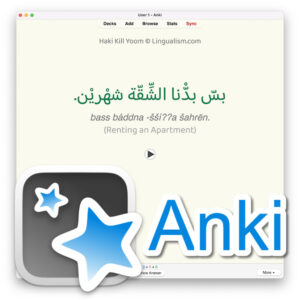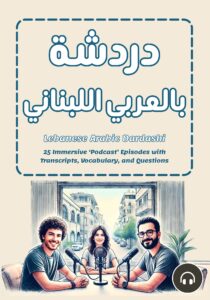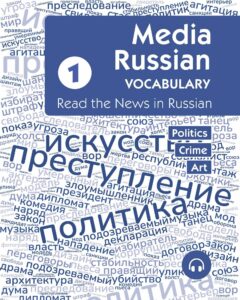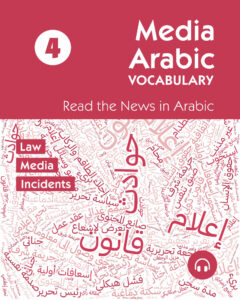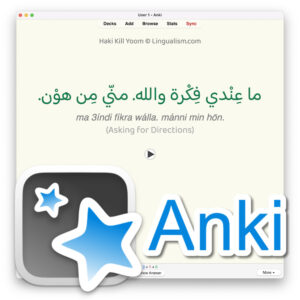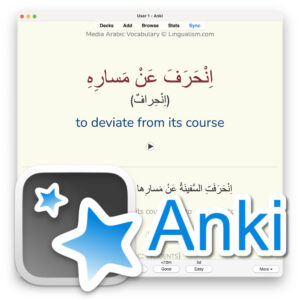Table of Contents
A few words to know:
- Sözlük, lugat: dictionary
- Dil: language
- Sesli: voiced
- Güncel: up-to-date, contemporary
- Telaffuz: pronunciation)
One of the first Turkish lessons every native speaker takes at school is about the types of meaning. The meaning is of three types: real/literal meaning (gerçek anlam), secondary/connotative meaning (yan anlam) and figurative meaning (mecaz anlam). While the literal usage of words is relatively understandable and easy for Turkish learners (and digital translation tools), the figurative language, though commonly used in spoken and written language, may go over your head as a beginner learner.
Even as an intermediate learner, you might sometimes find yourself struggling to read a newspaper column or random tweets due to the frequent use of satirical language (considering that satire and irony increase during times of economic crisis, political tension, etc.).
Before listing the top dictionaries for a more comprehensive understanding of the vocabulary (idiomatic and technical meanings in addition to the common usages), it is worth mentioning that Google Translate and DeepL both have been satisfying the users with the purpose of general translation due to their constantly-improving databases.
Although the database and translation capabilities for Turkish on both platforms still seem to be poor compared to other major languages like Spanish and French, they can be used in comparison with each other and other dictionaries in order to get the best results.
That being said, here are the best dictionaries to help you master Turkish (with a bonus at the end):
Tureng: The Overall Best
Suitable for all levels
Website, Google Play and App Store
As it can be inferred from its name, Tureng is an online English-Turkish dictionary commonly used among individual learners and professional translators.
The platform is available as both a website and an app and has been the first choice for English learners in Turkey for years. At the same time, there are constant updates and improvements to the dictionary’s database.
The dictionary is also organized into 120 categories, such as technical, medicine, social sciences, finance, etc., by a professional and experienced team in the field.
Though the ads sometimes may be distracting (and push you to buy the premium version), the easy-to-use interface closes the gap. The team describes their goal as providing “a resource where all possible meanings of a word can be found easily.” They seem to achieve their goal quite well with a huge and up-to-date database, making it the must-use app for Turkish learners as well.
(Tureng also has another app called Tureng Vocabulary Notebook, in which the user can save words and create lists, even while surfing on the net or another app. After getting used to adding new words, this app can also be used as an additional helpful tool next to Tureng.)
Sesli Sözlük: The Multilingual Top
Suitable for all levels
Website, Google Play and App Store
Sesli Sözlük (lit. Voiced Dictionary) is another quite popular English-Turkish dictionary with entries in 20 languages, including English-English and Turkish-Turkish definitions. It also provides pronunciations of words, generally in their simple form without prefixes and suffixes. Sometimes, it may provide an auto pronunciation that you can easily recognize from the harsh English accent. In that case, you can check out Forvo or YouGlish to clear your ears and better acquire correct Turkish pronunciation.
Wiktionary – Surprising as ever
Suitable for all levels
Wiktionary is a free multilingual dictionary that aims to put all the words in all languages together.
There are more than 44,000 English definitions for Turkish words, many times including the etymology and pronunciation. You can also sometimes compare the same word across different Turkic languages as well. The Turkish version of Wiktionary, Vikisözlük, also includes 370 thousand entries for Turkish definitions.
Zargan – Just in Case
Suitable for intermediate and advanced
While Tureng and Sesli Sözlük do most of the job, you may need to find a specific technical term or a colloquial expression and not find it on either. In that case, the website Zargan may come in handy with its surprisingly comprehensive database.
TDK – “L’Académie Turque”
Suitable for intermediate and advanced
Website, Google Play and App Store
Türk Dil Kurumu (TDK), Turkish Language Association, has been the official regulatory body of the Turkish language since 1932. TDK conducts research on Turkish and standardizes the language. On its website, TDK publishes the prescriptive, up-to-date dictionary Güncel Türkçe Sözlük. It includes high-quality pronunciations of the words and examples from famous Turkish authors.
Kubbealtı Lugatı – For literary aficionados
Suitable for intermediate and advanced
Website, Google Play and App Store
Kubbealtı Lugatı (lugat: dictionary, language) is an online dictionary published by Kubbealtı Foundation in order to connect the generations with their past and enable them to read 100-150 year-old texts, believing that deliberate interventions in the language–meaning Turkish language reforms motivated by linguistic purism–have made it poorer.
After years of effort, mainly by the linguist İlhan Ayverdi and other specialists, a dictionary was created, including words with examples from great authors, poets, and cultural sayings from the late historical period. In addition to the origins of the words in the website, the pronunciations are also added recently, which are the top in this list in terms of audio quality. If you are into history, Turkology, literature, Ottoman Turkish, or even want to have a taste of Turkish classics a little bit, Kubbealtı Lugatı is just perfect.
Bonus: Nişanyan Sözlük – For etymology enthusiasts
Suitable for intermediate and advanced
Website, Google Play and App Store
Nişanyan Sözlük is the online version of an etymological dictionary of contemporary Turkish prepared by the lexicographer Sevan Nişanyan in order to document the history and sources of all Turkish words in contemporary use.
The dictionary contains 32,268 words under 15,356 headwords, giving the oldest contexts found for the words in addition to the etymologies. In addition to checking random word etymologies to better remember them (or just to see how words, especially from Arabic, Persian, English, and French, have been incorporated into Turkish), you can also visit its unique sister websites –Nişanyan Yer Adları and Nişanyan Adlar– which are about the origins of the place and person names in Turkey.
In this first blog, after a long time of research and review, I have listed the top dictionaries for Turkish learners, which, surprisingly, are not very popular among learners. If you are interested in getting help on your Turkish journey …
Kolay gelsin 🙂



